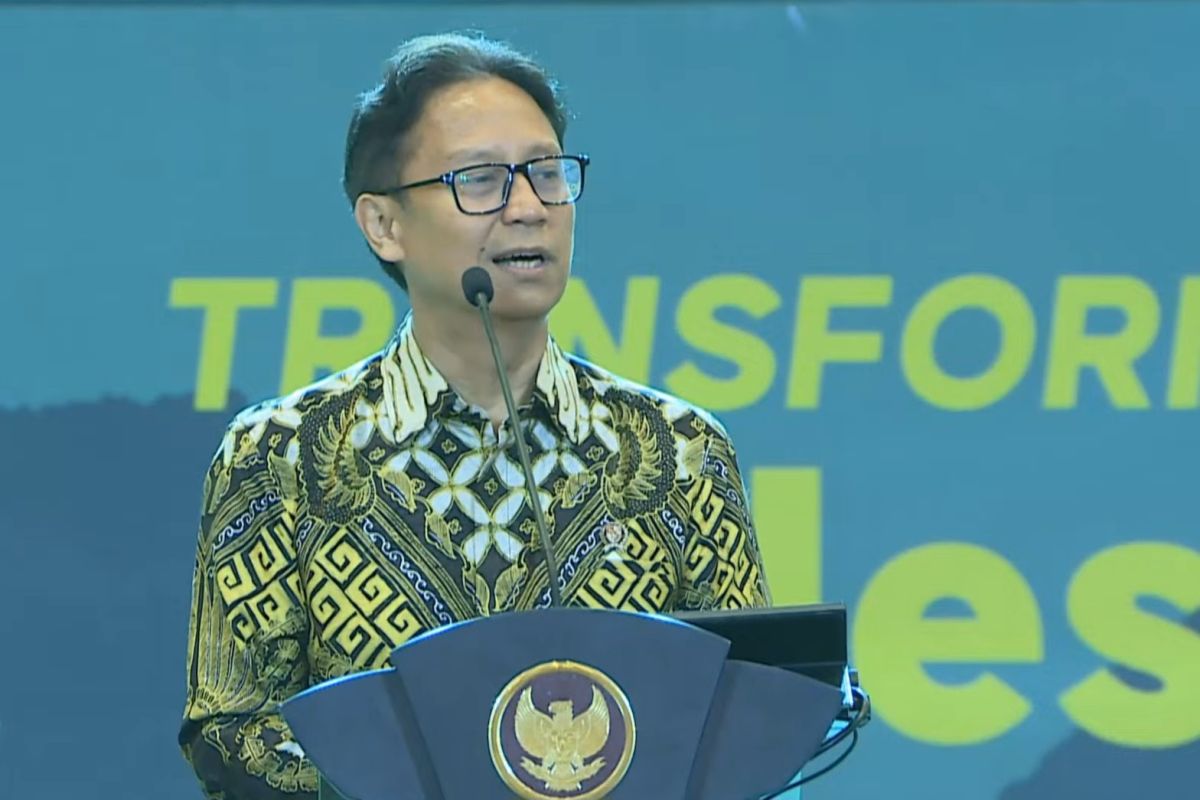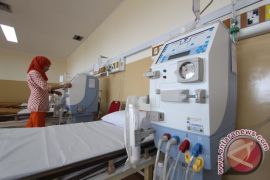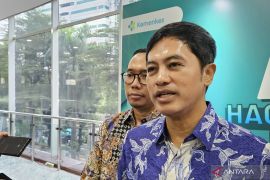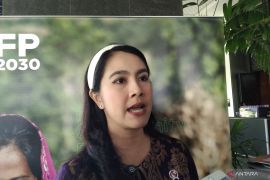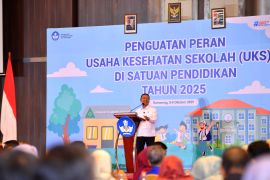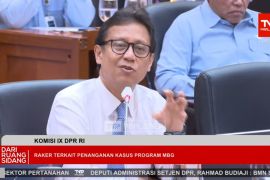Sadikin underscored the importance of firstly focusing on health since formal education for children starts at around four or five years of age, though it is important that their health must be taken care of long before they were born, which is during the gestation period of nine months.
He stated that World Bank classifies countries with a gross national income of US$13 thousand as developed. However, he pointed out that currently, Indonesia's gross national income is only US$4,800, so its people need to earn twice and half as much.
The minister said the figure meant that Indonesians, on average, need to earn Rp15 million (US$928) monthly.
"If one is neither healthy nor smart, then they would not be earning 15 million rupiah," he remarked.
He opined that focusing to ensure people stay healthy instead of attempting to cure illnesses is crucial to achieve the Golden Indonesia vision.
Sadikin stated that all along, people have been so focused on treatments that they forgo the needs to improve primary care medical facilities, such as integrated health posts, in a bid to maintain public health.
To address the issue, the minister remarked that the National Medium-Term Development Planning involves health transformation, which prompted 514 cities and districts from 38 provinces to partake in the efforts, with not only the health offices but also regional development planning offices.
Sadikin added that the ministry also urges private entities to join in the efforts, as the COVID-19 pandemic has taught them that the goal could not be met single-handedly by the ministry.
On the same occasion, President Joko Widodo noted that Indonesia will experience a demographic bonus by 2030, as 68 percent of its people will belong to the productive age bracket by then.
"This is a grand opportunity, and the opportunity usually presents itself only once in a nation's civilization," the president noted.
He highlighted that all this would be in vain if despite everyone being smart were sickly. The president believes that Indonesia still has a long way to go in terms of health, such as with regard to stunting.
During a period of 10 years, he pointed out that the figure decreased, from 37.6 to 21.5 percent as per 2023-end, although Indonesia is targeting 14 percent by the end of the office term.
Related news: Smart Papuan youths needed to achieve Golden Indonesia vision: BKKBN
Related news: Creative economy can support Golden Indonesia goal: Uno
Related news: Competent talents needed to realize Golden Indonesia: Minister
Reporter: Mecca Yumna Ning Prisie
Editor: Azis Kurmala
Copyright © ANTARA 2024
